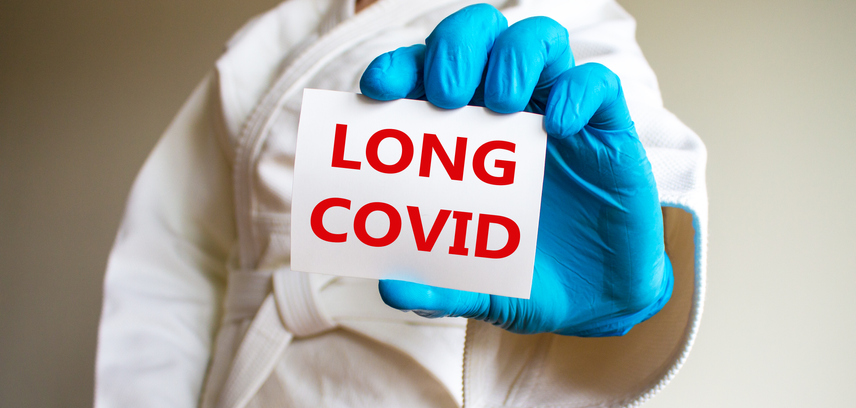An exhaustive study that casts doubt on the existence of what is commonly known as “long COVID,” a condition of acute symptoms months after a COVID-19 infection, was published in the Journal of the American Medical Association on November 8.
The study of nearly 27,000 adults in France asked participants if they had COVID-19 and if they were suffering from persistent ailments—such as fatigue, breathlessness, and impaired attention.
The researchers then obtained SARS-CoV-2 antibody tests for the people surveyed. Of the individuals with antibodies, 60 percent had no knowledge they were infected. More than 50 percent of those who said they had COVID-19 showed no antibodies indicating they had been infected.
Symptoms ‘Erroneously Attributed’
Symptoms of long COVID-19 appeared to be more prevalent in people who thought they had COVID-19, write the French study’s authors.
“[S]elf-reported COVID-19 infection was associated with most persistent physical symptoms, whereas laboratory-confirmed COVID-19 infection was associated only with anosmia [loss of sense of smell],” write the study’s authors.
“Further research in this area should consider underlying mechanisms that may not be specific to the SARS-CoV-2 virus,” write the authors. “A medical evaluation of these patients may be needed to prevent symptoms due to another disease being erroneously attributed to ‘long COVID.’”
‘Constant Fear-mongering’
The constant drumbeat of COVID-related news could be behind the self-reported symptoms, says Marilyn Singleton, M.D., J.D., a California-based physician.
“I don’t doubt that some folks take a long time to recover, but perhaps the constant fear-mongering has also left its mark,” said Singleton.
“This study should slow, if not stop, the rush to medicalize long Covid,” wrote Alex Berenson, one of the first journalists to note the implications of the study, on Substack, on November 10. “It is yet more proof that the illness is a group of squishy (if painful and difficult) symptoms looking for a name—and more importantly a billing code,” wrote Berenson.
U.S. health care providers have been able to use a specific billing code for the treatment of long COVID since October 1.
‘Too Quick to Label Patients’?
The public should not be so quick to dismiss patient complaints, says Jane Orient, M.D., executive director of the American Association of Physicians and Surgeons, and policy advisor to the Heartland Institute, which co-publishes Health Care News.
“Possibly, it’s the study that should be debunked,” said Orient. “Unfortunately, doctors are too quick to label patients with persistent symptoms malingerers or psychiatric patients. Chronic Lyme disease is a prime example. Patients who were previously vibrant and healthy are now sick, and they may have ongoing damage that could lead to pulmonary fibrosis, among other things. “They need to be checked for cytokines and coagulation factors and treated.”
Bonner R. Cohen, Ph.D., (bcohen@nationalcenter.org) is a senior fellow at the National Center for Public Policy Research.
Internet info:
Joane Matta, Ph.D., Emmanuel Wiernik, Ph.D., Olivier Robineau, M.D., Ph.D., “Association of Self-reported COVID-19 Infection and SARS-CoV-2 Serology Test Results with Persistent Physical Symptoms Among French Adults During the COVID-19 Pandemic,” Journal of the American Medical Association, November 8, 2021: https://jamanetwork.com/journals/jamainternalmedicine/fullarticle/2785832
